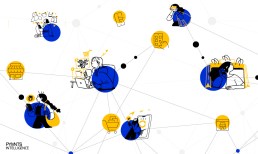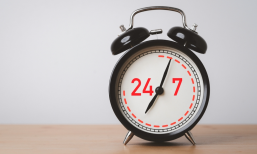Bad Data Makes Bad Decisions
Happy 2013 everyone!
Aren’t holidays just the best for catching up on reading old emails? Well, I did some of that too, and came across something that I have to admit caught my eye and required a another look.
One headline caught my eye:
“US NFC Mobile Payments Penetration Doubles, But Is Still Low”
Naturally, since this is about one of my all-time favorite topics, I had to read on.
The first sentence of the article reported that NFC mobile payments penetration jumped to seven percent in 2012, up from three percent in 2011. You probably have the same reaction now that I did then, which was “huh?”
So, I did a little digging.
The article cited a source (Statista) that reported the share of smartphone users using their mobile phones to conduct a mobile proximity payment increased from three percent in 2011 to seven percent in 2012.
Now, it made sense.
The article sort of mixed up a very important concept and that is that NFC and mobile proximity payments were the same thing. They aren’t. So, do I believe that the number of smartphone users using phones to pay in stores increased from 2011 to 2012? Yep. Do I believe that it was because of NFC? Nope.
Consider the following:
A. There aren’t a lot of phones out there that support NFC in the US and the biggest kahuna of them all doesn’t – Apple. Only some smart phones, mainly sold recently, have NFC chips.
B. I’ve seen some stats that report that roughly five percent of handsets in the U.S. last year shipped with NFC chips in them. Smartphones with chips need NFC wallets to make payments. Google Wallets and ISIS only work on a small number (think very small number) of handsets. I think we would have probably heard by know if there were millions and millions of people using their wallets at stores to make payments.
C. Starbucks announced towards the end of last year that it has eight million mobile apps users across its 7,000+ merchants using its app. LevelUp, another mobile payments barcode scheme recently passed its two millionth payment transaction milestone. Dunkin’ Donuts last August also launched its bar-code enabled mobile app.
D. Consumers can use Starbucks, LevelUp, Pay-by-Square and other barcode based payment apps on any Apple or Android phone.
E. Therefore, the mobile proximity play that is driving up the number of smartphone users using their phones to make payment is the bar code.
Elementary, my dear bar-code-enabled Watson.
 In case you are interested in the Statista chart that started my quest to clarify what I read, here it is. You can see that it clearly states that it was intended to measure smartphone users and mobile proximity payments and not NFC.
In case you are interested in the Statista chart that started my quest to clarify what I read, here it is. You can see that it clearly states that it was intended to measure smartphone users and mobile proximity payments and not NFC.
Just wanted to start the new year with the facts!
Now, NFC could end up being the standard mobile payments technology in a decade. Android phones are increasingly coming with NFC chips and Apple could always take the plunge especially if it develops a business case.
In fact I might even make a new years resolution to be more positive on NFC. What gets my blood flowing though is how much hype there’s been around NFC and how consumers have gotten a back seat in these discussions. Say it again, my news years resolution…



